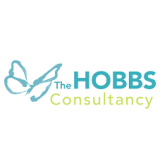This informal CPD article, ‘How to create a more neuro-inclusive culture‘, was provided by The Hobbs Consultancy, who help businesses to navigate diverse and inclusive complexities, learning the skills required for everyone to be able to step into their inclusive leadership.
How to create a more neuro-inclusive culture
People's brains are wired differently. There is strength in this diversity, and there is also challenge. One of the great things about the increased awareness about neurodiversity, is that more and more people in the workplace are 'coming out' and claiming their neurodivergence. How can you support them?
1. Greater visibility is progress
Not long ago, those that are neurodivergent were largely hidden in the workplace. Employees often hid their conditions, such as dyslexia, dyscalculia, ADHD and autism, for fear that it would negatively impact their employment opportunities.
We are beginning to create workplaces which are accepting of these differences and where people feel able to be more open. This is progress. It is worth reflecting on what has changed to enable this psychological safety. There has been a lot of attention in the wider media sphere, but has anything changed in your workplace to support this?
2. Don't expect a one size fits all checklist
Solving for gender diversity in the workplace is complex. Creating a neuro-inclusive workplace is even more so. There is simply a greater diversity of challenges being faced and it largely requires individualised focus. There are systemic shifts that you can make, but don't expect a handful of policy and process changes to make a large impact.
3. Adopt a strengths-based approach
So much of the rhetoric around neurodiversity is about people's struggles and what they can't do. Modern coaching is very much focused on what people can do, and supporting them in playing to their strengths. The same is true for those that are neurodivergent.
They may, over time and after much persistence, improve at some of their 'weaker' areas, but, like anyone, will fly if able to focus on their strengths. Dyslexic people tend to be very creative and empathetic, autistic people can have intense periods of hyperfocus and those with ADHD might respond better than most to change. Note the careful use of language there; such people are individuals and not their labels. They are all different from one another and don't fit neatly into prescribed boxes.
4. Take an individualised approach to people's challenges
As Stephen Shore, an American autistic professor of special education at Adelphi University said; 'if you've met one person with autism, you've met one person with autism'. Everyone's challenges are unique and don't fit easily into 'autistic challenges', 'dyslexic challenges' and so on. Instead, make it a habit to talk to everyone about what they need so as to be set up for success. Once someone discloses their neurodivergence, you are legally obliged to consider reasonable adjustments.
In our work, we've found one of the biggest challenges is identifying the adjustments that might be helpful. Strengths-based assessment tools may work for you. Alternatively, hook them up with a coach who can work with them to create a list of adjustments that might be helpful for them.
Creating a neuro-inclusive work environment is good for business, good for culture and, ultimately, the right thing to do. It is not necessarily the easy path and it will challenge everyone to change their behaviours. Remember, we can't 'fix' ND people because they don't need fixing! What they need are workplace environments in which they can be themselves and in which they can be supported to achieve their full potential.
We hope this article was helpful. For more information from The Hobbs Consultancy, please visit their CPD Member Directory page. Alternatively, you can go to the CPD Industry Hubs for more articles, courses and events relevant to your Continuing Professional Development requirements.













